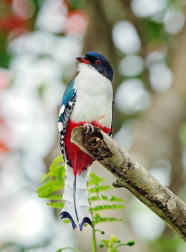
A chemist from Brooks Applied Labs recently traveled with a group to Cuba for two weeks, and she shared her experiences during this fascinating adventure with us. It was an exciting opportunity to connect with Cubans to learn what life is like there for many people, with a focus on the lives and roles of women in Cuba. Brooks Applied Labs values our diverse staff with rich backgrounds and experiences. We believe that having employees who can bring varied perspectives together allows for an incredible, inclusive culture that fosters limitless learning opportunities.
To experience a slice of Cuban childhood and education firsthand, the group was able to visit a large primary school for grades 1-8. She found the breadth of studies available to be impressive. “It was a huge school. They had a zoo with animals like a monkey, a crocodile… there was an agricultural farm.” She explained how the zoo was a part of the curriculum, with classes teaching biology and how to care for the animals. The school put on a dance performance for the visiting Americans to demonstrate their arts program, which teaches dance, singing, musical instruments, visual arts, and more. “Seeing how confidently they were [dancing] was really amazing. Our group was crying at the end of the experience.”
A visit to a maternity clinic provided insight on the healthcare available to women in Cuba. According to UN World Population Prospects, the infant mortality rate in Cuba has dropped drastically in the past half-century, with rates now lower than the United States. Many of the women were from rural areas and were staying at the clinic because of its focus on chronic illnesses such as diabetes. Women in every region have access to these specialized maternity clinics.
The group visited small towns and rural areas, and met with the about 50 women in leadership positions at an agricultural co-op. “They were very happy to meet us and welcomed us with food and coffee that they had produced. They wanted to get to know us, too.” They explained that one purpose of the co-op is for farmers to be able to share machinery. Instead of each of the many farmers buying his or her own tractor, they are able to share a few within the co-op. The co-op also helps with loan assistance, pools resources, and provides many other services for the community.
The women they met hold many different positions from finance management to agricultural engineering, and the women there held a majority of the leadership positions of the co-op. This was important to see, she explained, because “without a co-op, these leadership roles don’t exist, so it helped cultivate positions for women and gave them the opportunity to step into a leadership role. In turn, you now have a co-op that mainly women are running.”
Stepping a bit further from the city and small towns, she was able to enjoy the natural beauty that Cuba has to offer as well, summiting the highest peak in Cuba, Pico Turquino. It may have been challenging – it was a 26-km hike over three days – but she explained how much she enjoyed it. “It was really cool… we got to be in nature and see the biological diversity in the tropics. It’s very dense. There are a lot of birds, a lot of bird watching” Her favorite? The beautifully colorful national bird of Cuba, “called the Tokororo (pictured), because that’s the noise it makes!”
Now back in Seattle, she is excited to share her observations and experiences with the community at home. We are glad to have her back with us at Brooks Applied Labs and are very grateful for the chance for all of us to learn more about Cuba!
